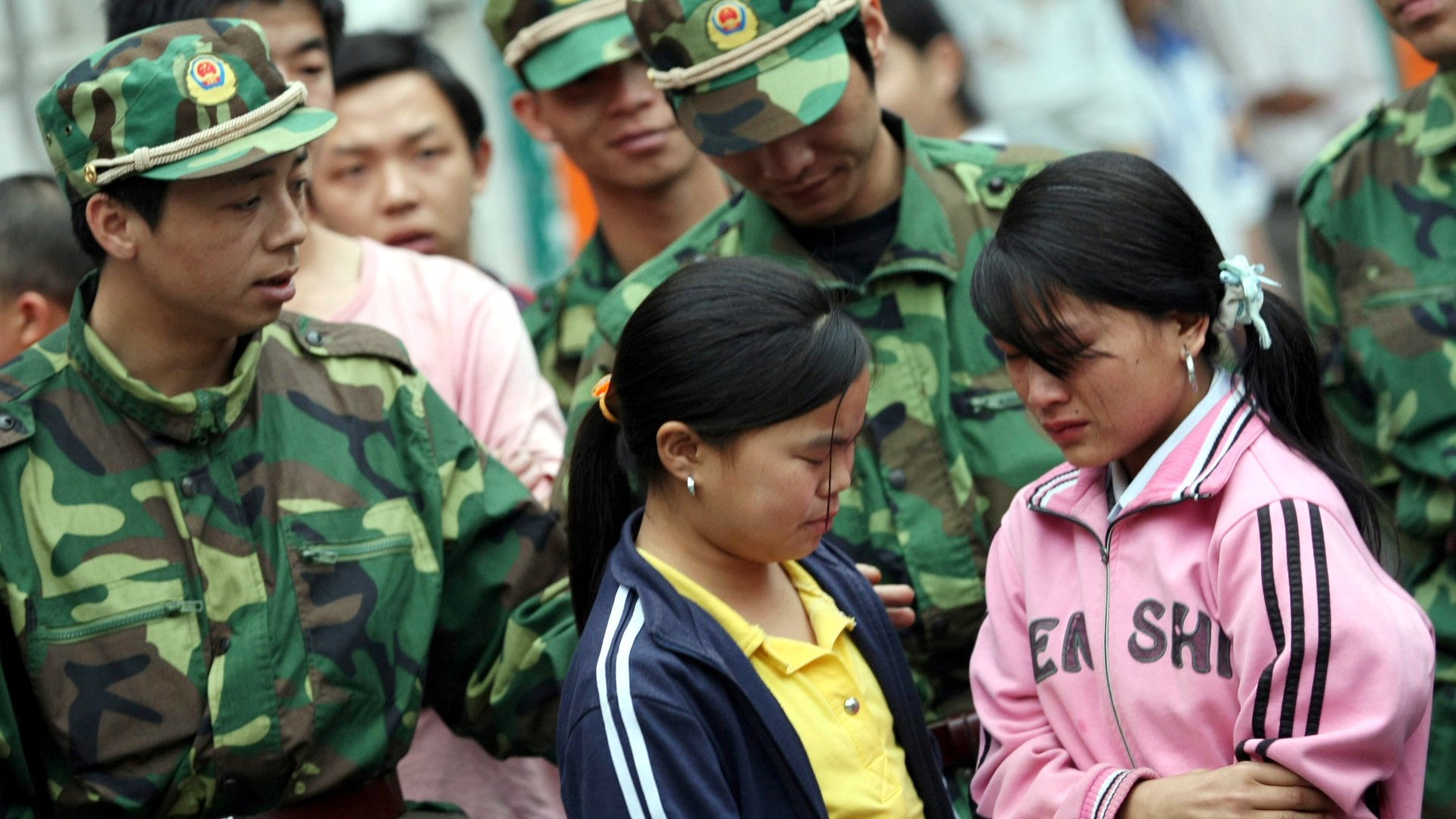What Chinese child laborers have in common with the American truckers who unload their goods
When Chinese factories and American shippers are using the same tactics to abuse workers, the problem is bigger than either economy.


When Chinese factories and American shippers are using the same tactics to abuse workers, the problem is bigger than either economy.
China Labor Watch revealed yesterday (pdf) that, despite claims to the contrary, a factory that makes mobile phone parts for Samsung still employs child laborers. Three 14- and 15-year-old girls explained to a New York Times reporter how they skirted Chinese regulations and measures instituted by the South Korean manufacturer to work in the factory: They were hired by a “labor dispatch” sub-contracting company, which sends them to factories ahead of surges in production. The factories pay the sub-contractor, which takes a cut of the workers’ wages. Sub-contracted workers have been the cause of the biggest child labor discoveries in Apple’s supply chain as well.
The story doesn’t end there. Goods manufactured in Asia’s factories often wind up in the US via the Port of Los Angeles, the busiest in the United States. Right now, that port is dealing with its own labor strife, and there are disturbing similarities between the predicament of workers there and what the Chinese child laborers face.
At the US port, once containers are taken off ships, shipping firms hire truck companies to take them to warehouses or train yards. Most of those truck companies, in turn, only hire drivers as independent contractors, not employees—so the truckers must pay for all the costs of their trucks (gas, maintenance and insurance) and aren’t eligible for benefits, overtime pay or worker’s compensation. The workers have been arguing for years that this is a case of intentional and illegal worker misclassification—and they are getting results, having been awarded $4.3 million in back pay and damages so far. Small groups of truckers have been striking and picketing this week, demanding full employment.
Obviously, child labor is a more troubling problem than adults being denied their full pay, but in each case the use of sub-contracted, ostensibly temporary employees is the work-around that allows for labor abuse. Neither country has proven able to effectively enforce its labor laws around this issue. So it turns out that whatever the national characteristics of your capitalism, there are parallels to be found in labor’s loss of power.